AP Gov Unit 1 Review
1/56
Earn XP
Description and Tags
Note:* mean important topics to know. This review guide does not go into detail on any of the required documents, such as the Articles of Confederation.
Name | Mastery | Learn | Test | Matching | Spaced |
|---|
No study sessions yet.
57 Terms
What was the Enlightenment?
A European intellectual movement in the 18th century that influenced how the framers of the Constitution thought.
Who were the four main Enlightenment philosophers?
The three Enlightenment philosophers were John Locke, Baron de Montesquieu, Thomas Hobbes, and Jean-Jacque Rousseau.
What was Thomas Hobbes’s contribution to the Enlightenment philosophy?
He believed in the Social Contract theory, that in order to prevent a stateless society, people must sacrifice some of their rights to bring about freedom and security for the common good of all.
What was Jean-Jacque Rousseau’s contribution to the Enlightenment philosophy?
He introduced the concept of Popular Sovereignty, that the “ultimate ruling authority” was the people and they were the ones shaping the laws that governed them and the government officials only carried them out.
What was Baron Montesquieu’s contribution to the Enlightenment philosophy? (2)
He advocated for a form of government called Republicanism, where the people elect leaders and the leaders make laws in the interests of the people. The power in the government should be split into different branches, (Legislative, Executive, and Judicial).
What was John Locke’s contributions to the Enlightenment philosophy?
He proposed the idea of natural rights, that all people are born with equal rights to life, liberty, and property. Since the government did not give them these rights, they also could not take these rights away.
What did John Locke believe should happen if the government failed to protect the people’s rights?
The people had the right to, and should revolt and establish a new government. Power of the government comes from the consent of the governed.
What is limited government?
A government protected from tyranny through a system of checks and balances and the distribution of power among several acting members.
Why did American colonists want to break away from King George lll and Great Britain?
They believed Britain had violated their natural rights and violated their right to self governance.
What are the three main forms of democracy in the United States?*
Participatory, Elite, and Pluralist.
What is the Participatory from of democracy?*
A type of democracy with broad participation. Most, if not all citizens are involved in political processes.
What are the key features of Participatory democracy?*
People don’t need leaders to meditate between them and the government, like in town hall meeting where people are directly involved, or protesting policies they don’t like, or voting directly for policies. Shows up more in state and local levels.
What is the Elite form of democracy?*
Form of democracy limiting participation to only a few well educated and informed states people who are qualified to direct the nation on behalf of the people.
What are the key features of Elite Democracy?*
The US government is complex so it helps if experts are doing the work. Can prevent masses from making unwise decisions. The Electoral college and Supreme Court are examples of this.
What is the Pluralist form of democracy?*
A type of democracy that emphasizes group based activism that works to influence decision making.
What are the key features of the Pluralist democracy?*
Average citizens come together in groups united in a single cause (interest groups) and have a big influence on policies through investing money in candidates, and persuading legislators a certain way.
Who were the Federalists?
Those who supported a strong federal government and full ratification of the proposed Constitution.
What did the Federalists want in terms of state government to federal government power ratio?
Stronger federal government and weaker state governments to unite the individual states under a single power.
Who were the Anti-Federalists?
Those who opposed the ratification of the Constitution.
What did the Anti-Federalists want in terms of state government to federal government power ratio?
Stronger state governments with a weaker national government to prevent tyranny.
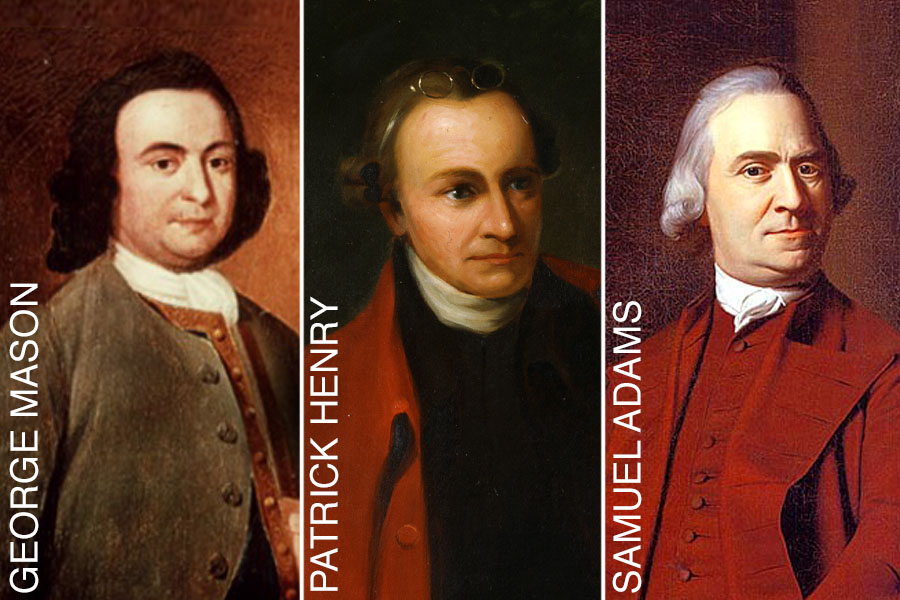
Why didn’t the Anti-Federalists want the Constitution to be ratified?
Having recently come out of Britain’s tyrannical rule, they feared the Constitution gave the national government too much power like the one they just escaped from and would probably become tyrannical.
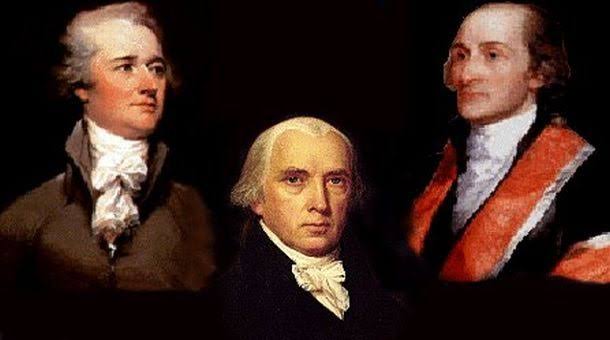
Why did the Federalists want the Constitution to be ratified?
They believed the Constitution would protect the rights of the states and individuals to create a balanced government. They feared that without a strong central government there would be instability and disorder.
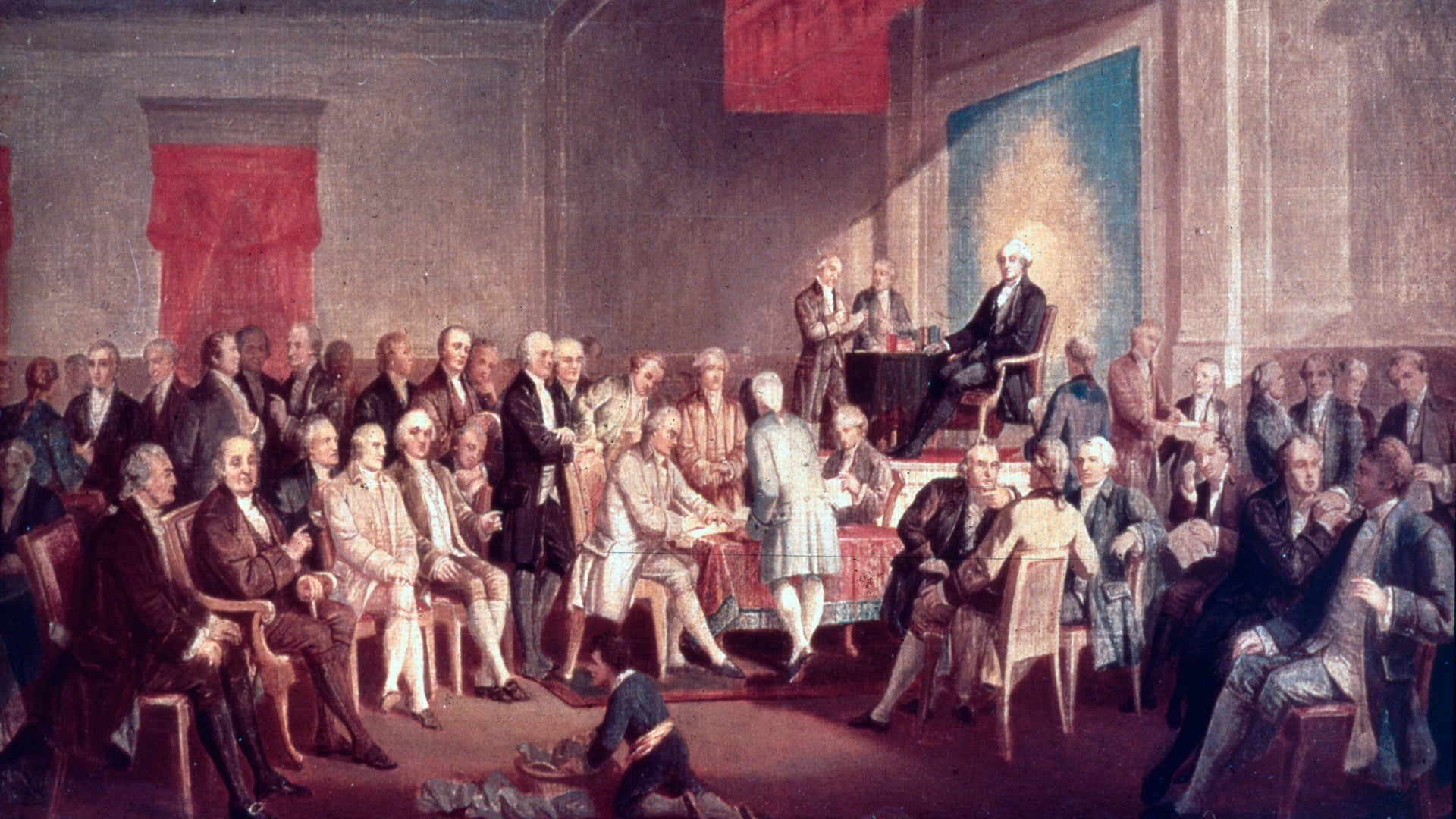
How did the Federalists eventually get the Anti-Federalists to ratify the Constitution?
They wrote the Federalist Papers and promised to add a Bill of Rights to the proposed Constitution that would protect their individual freedoms.
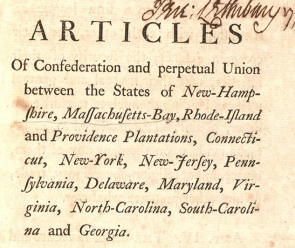
What were the Articles of Confederation? (generally)
Original document that governed the American people that gave the states a disproportionately large amount of power compared to the federal government.
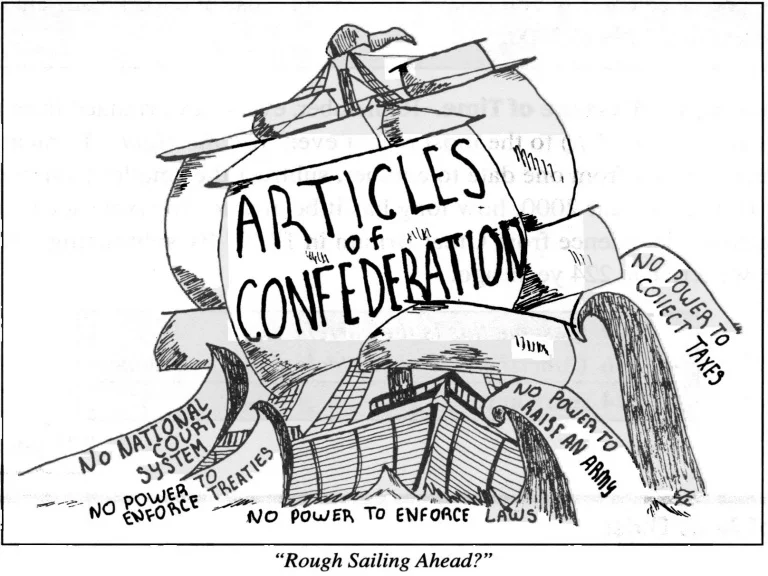
What were the problems with the Articles of Confederation? (5)
There was only Congress, no other branches of government to enforce the laws
Congress had no power to raise revenue through taxes so it had no money
Amendments required unanimous consent from all states, making changes difficult.
The government did not have the power to raise an army
The government had no power to regulate interstate commerce
Why was it a problem that Congress could not regulate interstate commerce?
Each state came up with their own trade regulations which led to trade wars between states, states imposing tariffs on eachother, and larger states were doing much better economically than smaller states.
In 1787, what event highlighted the fact that the government was too weak under the Articles of Confederation? Describe.
Shays Rebellion, which was a group of poor farmers that were protesting unfair taxes and economic injustices by the Massachusetts government. Because the federal government did not have an army, the rebellion had to be stopped by a private militia.
Why didn’t Brutus want a large, centralized government?
He thought it would not adequately represent the views of the people it represents because it would be largely separated from them.
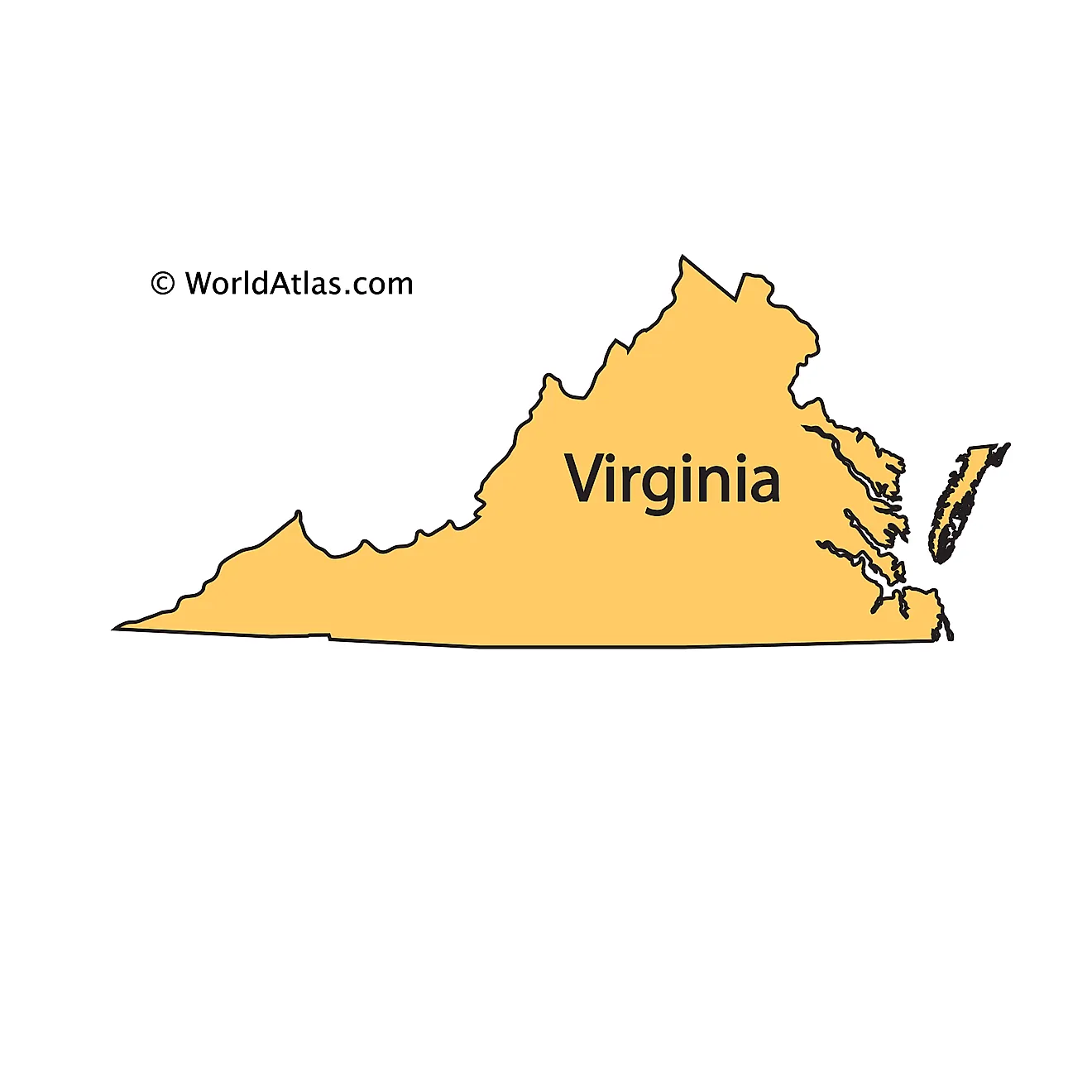
What was the Virginia Plan?
A plan proposed by the Virginia at the Constitutional Convention that benefitted the larger states because it proposed having a bicameral legislature and representation in both based on the population of each state.
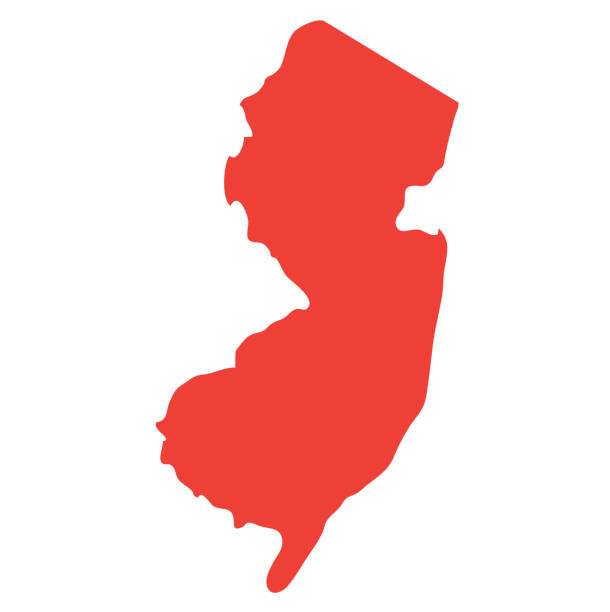
What was the New Jersey plan?
A plan proposed at the National Convention that benefitted smaller states because it advocated for a unicameral legislature and equal representation for each state.
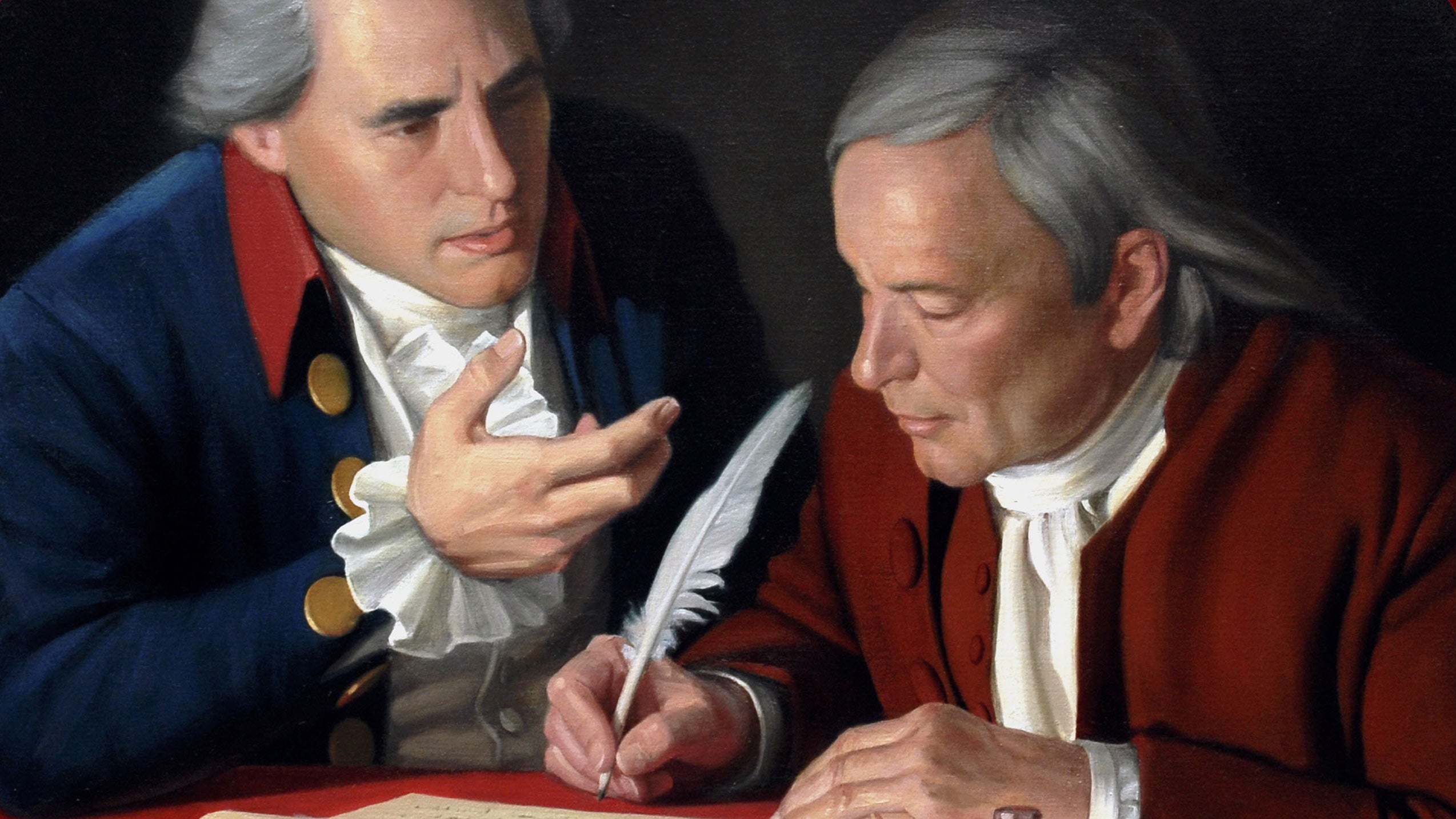
What was the Great Compromise?*
A compromise created between the Virginia Plan and the New Jersey Plan that came up with a bicameral legislature composed of a House of Representatives and Senate. Representation in the House of Representatives is apportioned by population of the state, and the Senate gives equal representation to all states.
What was the Electoral College? Describe (How many electors does each state have, how do those electors get picked, how many electors in total, etc.?)
The system created at the Constitutional Convention to elect the President. Each state gets the number of electors that correspond to the number of House Representatives and Senators their state has.
The Electors are picked through two steps, firstly when people cast their ballots it contributes to a statewide vote and secondly the state awards the candidate with the most votes all the electoral votes.
What was the 3/5 Compromise?
Compromise reached at the Constitutional Convention that decided that 3/5 of the enslaved population would be counted as representation in Congress.
What was the Slave Trade Compromise?
Compromise reached at the Constitutional Convention that declared that Congress would not touch the slave trade for twenty years, and after that period it would completely abolish it.
What is the two step process for amending the Constitution?
Proposal and Ratification
Who can propose an amendment and when can they do it?
Two thirds majority vote in both the House of Representatives and Senate at a Congressional meeting or by two thirds of state legislatures at a national convention, (two thirds of each house in each state need to agree and then two thirds of the entire fifty states need to approve it)
How is an amendment ratified?
¾ of all state legislatures need to approve it.
What is the Senate’s Advice and Consent power?
Any appointment made by the President for the Presidential cabinet or the Supreme Court has to be approved by the Senate
What is Judicial Review?*
The power of a court to declare a law unconstitutional
What is Federalism?*
The sharing of power between the Federal and state governments
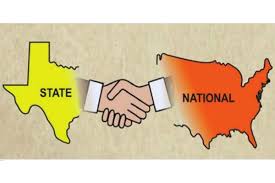
What are enumerated powers?*
Powers specifically given to the federal government by the Constitution.
What are reserved powers?
Powers kept specifically for the states.
What are concurrent powers?
Powers that the federal and state governments share
What is Fiscal Federalism?
Sharing of money between the Federal and state governments, the financial relationships between different levels of government.
What are categorical grants?
Grants given by the federal government to the state governments to be used for a specific purpose and only if states comply with the federal standards.
What are block grants?
Grants given by the federal government for a very broad purpose so the states can use it however they want, as long as it relates to that purpose.
Whats a mandate?
When the federal government passes a law saying states have to do something but then they give them money to do it if it is beyond their budget capacity.
What does the Fourteenth Amendment do?*
Applies the Bill of Rights to the states
What does the Commerce Clause do?*
Allows Congress to manage the commerce between states and with foreign nations.
Where is the Commerce Clause found in the Constitution?
Article 1, Section 8
What is the Necessary and Proper/Elastic clause?*
Congress can make any law it seems “necessary and proper” to carry out the powers that are specifically enumerated to it.
Where is the Necessary and Proper clause found in the Constitution?*
Article 1, Section 8
What was McCulloch v. Maryland about? (generally)*
The federal government had established a national bank in Maryland and Maryland argued that Congress had no right to put a national bank because not only was it not in the Constitution but they did want it to compete with their state banks or tax them and their businesses.
The Court rules that Congress did have the power to create a national bank because of the Necessary and Proper clause and Maryland could not tax the bank either because the federal government is higher up than the states.
What was significant about McCulloch v. Maryland?*
It was the case that determined that Congress had implied powers even if they were not specifically expressed in the Constitution, giving it power over the states.
What was US v. Lopez about?* (generally)
A high school senior brought a gun to school which was illegal under the federal Guns-Free-School-Zones-Act. He was tried under a federal court where his lawyers argued the federal government had no right to institute that act in the first place since public school were run by the state. The federal government argued this was constitutional because gun violence in school would affect all the surrounding areas and should be regulated as Commerce because of that.
Why was the US v Lopez case important?*
The US v Lopez case marked the first time in 60 years the Court had declared the federal government’s use of the Commerce clause unconstitutional. It was part of the debate over how much power the federal government has over the states.
What does Federalist 70 say?
We need to have one President not multiple because otherwise there would be too much confusion and division amongst leaders. In case of an emergency, they would not be easily equipped to take control of the situation, they might cause factions amongst the people, and nothing would get done.